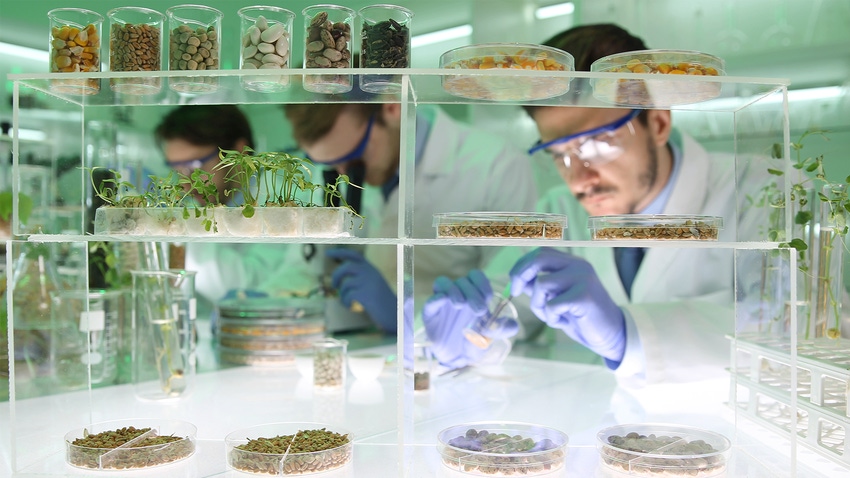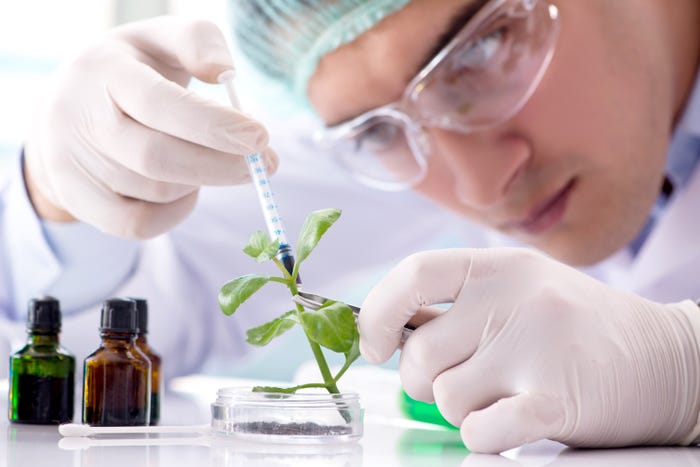FDA issues guidelines on plant foods produced using genome editing
The agency issued new guidance for developers of genetically engineered foods, aiming to ensure safety while keeping pace with advancements in plant breeding techniques.

At a Glance
- FDA released new guidelines for food developers using genome editing to ensure safety.
- These guidelines are needed because science is rapidly advancing genome editing techniques and FDA wants to keep pace.
- FDA encourages, but doesn’t require, developers to voluntarily consult with them before marketing these foods.
Bioengineered, genetically modified (GMO) and genetically engineered food all mean that the DNA of a plant has been altered. Federal labeling laws for bioengineered food (BE) went into effect on Jan. 1, 2022. Fourteen foods — alfalfa, Artic apples, canola, corn, cotton, eggplant, papaya, pink flesh pineapples, potato, salmon, soybean, summer squash, sugarbeet and sugarcane — require label identification, per the United States Department of Agriculture (USDA). The Food and Drug Administration (FDA) issued guidance on new plant variety regulations on Feb. 22, 2024.
The new guidance follows FDA’s request for comments in 2017. The 583 responses run the gamut from citizens who are opposed to gene editing to scientific centers that provided detailed thoughts regarding the safety of bioengineering. A group of scientists from the Donald Danforth Plant Science Center in Creve Coeur, Missouri, wrote in a letter to FDA, “The possible unintended consequences of mutation through chemical means or ionizing radiation (both methods used in traditional breeding) are more likely to produce unintended effects than other methods of genetic modification of plant varieties,” referencing a publication by National Academies.
In part, new guidance is necessary because science is rapidly advancing the technology for genome editing. In 2022, President Biden issued an executive order on advancing biotechnology and biomanufacturing innovation. “It is the policy of my Administration to coordinate a whole-of-government approach to advance biotechnology and biomanufacturing towards innovative solutions in health, climate change, energy, food security, agriculture, supply chain resilience, and national and economic security,” he said.
In FDA’s constituent update announcing the new guidance, the agency commented on the advancements in the field of plant biotechnology that are bringing new food products to the marketplace. These advancements could contribute to helping meet the needs of a growing world population and to helping address food insecurity globally.

Historically, plant breeders have generated new plant varieties through techniques such as hybridization. In the 1980s, plant breeders began using recombinant DNA technology to introduce genetic material into a plant. Newer methods such as CRISPR (clustered regularly interspaced short palindromic repeats) are currently in use to modify the DNA sequence of a plant by inserting, deleting or substituting a nucleotide at a specific site in a plant’s genome. Precise gene editing can create new plant varieties that can produce fruits and vegetables that are similar to or identical to foods from traditionally bred plants.
No matter the means of plant breeding, introducing genetic variability can result in changes to the plant’s phenotype. These are called unintended effects or unexpected effects. FDA has observed that, among the plant varieties used to produce food, only very rarely have foods from new plant varieties raised safety concerns.
“As of 2023, we have completed voluntary premarket consultations on food from more than 200 new biotechnology-derived plant varieties intended for commercialization to ensure an unintended characteristic causing a food to be unsafe under the FD&C Act in these varieties is not present,” FDA said in the guidance. “Based on available scientific data and information related to the use of genome editing in plants, unintended changes potentially resulting from genome editing are likely to fall within the scope of unintended changes associated with all other plant breeding practices that have historically produced safe food.”
FDA holds developers responsible for ensuring new plant varieties are safe and comply with legal and regulatory requirements. “In addition to the standard premarket selection process performed on new plant varieties by plant breeders, we expect that foods from some plants produced using genome editing may have characteristics that warrant additional molecular, chemical, and/or nutritional analyses,” FDA explained. For example, new proteins may raise allergen or toxicity questions. It is possible the nutritional content is modified.
Foods intended for animal consumption raise different concerns because these foods may contain high percentages of a certain plant variety such as corn or soybean meal. These animals may be fed the same diet for their entire lives, so a change in nutrient or toxicant composition can have a significant impact.
While FDA expects the plant varieties to be used in any type of food to be safe, there is no premarket approval requirement. The agency recommends voluntary premarket engagement through one of two processes. Foods that are less likely to raise safety concerns may undergo a premarket meeting pathway. Foods that may have a higher risk should undergo a premarket consultation. Participation in these programs is not required by law; however, FDA encourages developers to follow guidance regarding new plant varieties.
About the Author(s)
You May Also Like






